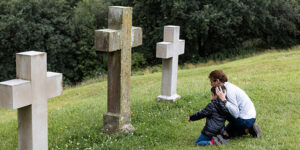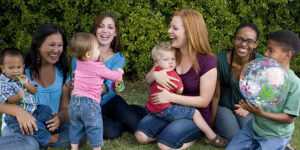
Image courtesy of Australian Electoral Commission.
In recent weeks, Australian kids have started noticing that our country is in ‘referendum mode’. They’re pulling leaflets out of the mailbox, seeing signs in people’s windows and hearing the adults around them discussing the arguments for ‘Yes’ or ‘No’.
So how can we explain what is happening in a way that our children will understand?
What’s a referendum?
A referendum is a vote asking all Australians to answer ‘Yes’ or ‘No’ to a question about changing the Australian Constitution. It is compulsory—all Australian citizens have to vote.
What’s the Australian Constitution?
The Constitution is a set of rules about how Australia is governed. It has eight chapters which describe how decisions and laws will be made for the whole country and for each state—through the parliaments, where our elected representatives meet.
For more about elections, see our article ‘Mum, who are those faces on the telegraph pole?’.
The Australian Constitution is different to the Constitution of the United States of America, because it does not contain a ‘bill of rights’. In Australia, people’s rights are protected by the laws made by the parliaments and by the courts.
Do we have to vote on every law?
No, usually the state and federal governments (or other members of parliament) suggest laws which then have to be debated and accepted by the parliaments. This means that for most laws, we rely on the people who were voted in to represent us to decide on the best way to run our country.
But when it comes to the Constitution, any changes have to be approved by the people of Australia through a referendum. If the people say ‘Yes’ then the Constitution must be changed.
Sometimes, the government will ask the people of Australia to say ‘Yes’ or ‘No’ to another change to the law, one which doesn’t affect the Constitution. This is called a plebiscite. The result of this kind of vote can help the government to make their decision, but it doesn’t legally have to be followed. A postal plebiscite was held in 2017.
Have there been many referendums?
Yes, there have been 44 referendums since the Constitution was established in 1901. Only eight of those referendums have been ‘carried’ or ‘passed’ (that is, the ‘Yes’ vote won). The 1967 Referendum about recognising Aboriginal people in the Constitution as equal citizens passed by a huge majority of 90%. The last referendum was held in 1999.
How can a referendum get passed? When does a ‘Yes’ vote win?
A referendum can only be passed, and the Constitution changed by a ‘double majority’ of voters. That means, more than half of Australians overall need to vote ‘Yes’ and more than half of the voters in at least four states (that is, more than half of the states) need to vote ‘Yes’.
What is the question in this referendum?
Keep reading over at Growing Faith, a Christian online magazine for parents. Find out more about Growing Faith and subscribe to our monthly e-newsletter here.









